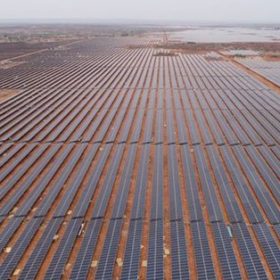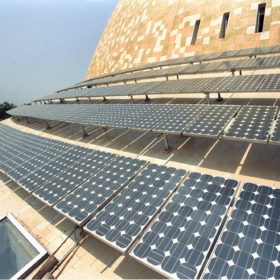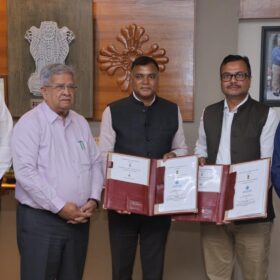Driving India’s energy transition
India needs to look at a diverse set of flexibility options such as natural gas capacity, variable renewables themselves, energy storage, demand-side response and power grids, to ensure successful integration of wind and and solar PV, says an International Energy Agency (IEA) report.
Tata Power Solar bags 250MW solar project from NTPC
The project—valued at Rs 15,050 million—is to be set up using only domestically manufactured cells and modules. Completion period is 20 months.
Rajasthan set to take the solar crown in 2020
Norwegian analyst Rystad Energy has predicted the stop on PV tenders in Karnataka will see Rajasthan become India’s leading solar state this year. The market research firm expects India to add only 10 GW new solar in 2020, however, and the same figure in 2021.
‘India will add 14 GW of solar this year’
The annual global outlook report for solar published by IHS Markit notes there was no real uptick in the amount of new capacity added last year, compared with the returns seen in 2018. That is likely to kill any hope India has of overtaking the U.S. as the world’s second biggest solar market in 2020.
Assam tenders 30 MW grid-connected, 940 KW off-grid solar
Ceiling tariff is fixed at Rs 3.13 per unit for the 30 MW grid-connected projects that are to be set up by state-run generators using domestically made equipment. The 940 KW of off-grid solar capacity is tendered under state budgetary support for year 2019-20.
SECI tenders another 1.2 GW of grid-connected solar projects across India
Bidders can pitch for up to 300 MW of generation capacity per project with the deadline for proposals on February 4. The eighth tranche of inter-state transmission system program capacity offered by the Solar Energy Corporation of India comes with a solar energy price ceiling of Rs2.78/kWh.
NHPC invites global bids for 2 GW of solar projects
Developers have until January 17 to submit bid for the grid-connected projects that are to be set up anywhere in India on build-own-operate basis. Tariff ceiling payable to the project developer is fixed at INR 2.78/KWh for 25 years.
SunEdison’s rooftop solar arm acquires Sherisha Solar
The Chennai-based solar EPC contractor and trader, which formed SIL Rooftop Solar as the new subsidiary in October, has included battery-based energy storage as a focus area in addition to renewable energy projects.
2636 EV charging stations sanctioned under Fame India Phase II
Of these, 1633 charging stations will be fast charging stations and 1003 slow charging stations. With this, about 14,000 charging stations will be installed across the selected cities.
Maharashtra retenders 1350 MW ground-mount solar projects
Ceiling tariff is revised to Rs 3.30 per unit for distributed solar projects that shall come up across 30 districts for giving day time power to agricultural consumers in the state. Individual project size is limited to 2-10 MW. Bidding closes on January 29.













